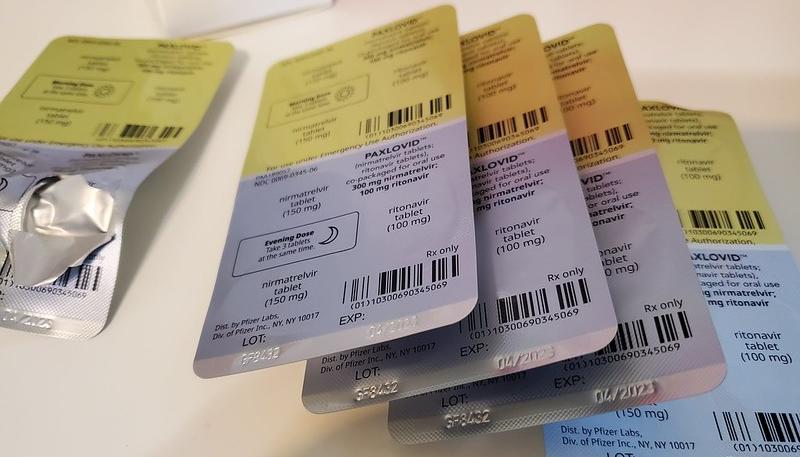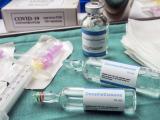A new study in the New England Journal of Medicine suggests that, for those fully vaccinated against COVID-19 but having at least one risk factor for severe COVID, the antiviral drug Paxlovid did little to reduce symptom duration, but experts caution the findings might not apply to older patients.
The phase 2/3 trial of 1,296 participants randomly assigned in a 1:1 ratio to receive nirmatrelvir–ritonavir (Paxlovid) or placebo every 12 hours for 5 days within 5 days of COVID-19 symptom onset. A total of 654 participants took Paxlovid, and 634 participants took the placebo.
The study was conducted from July 2021 to July 2022.
Included in the study were patients who were fully vaccinated and who had at least one risk factor for severe disease, as well as patients without such risk factors who had never been vaccinated against COVID-19, or had not been vaccinated within the previous year.
No significant between-group difference
The most common risk factors noted were obesity, smoking, and high blood pressure, and only 2% of participants had heart or lung conditions that predisposed them for severe COVID-19 infections.
Participants recorded daily symptom severity on a 4-point scale (0, absent; 1, mild; 2, moderate; 3, severe), and the included symptoms were cough, shortness of breath or difficulty breathing, feeling feverish, chills or shivering, muscle or body aches, diarrhea, nausea, vomiting, headache, sore throat, and stuffy or runny nose.
The primary end point was sustained symptom alleviation, defined as the first of 4 consecutive days during which all symptoms that had been scored as moderate or severe and as mild or absent at baseline were scored as mild or absent and as absent, respectively, the authors said.
"The median time to sustained alleviation of all targeted signs and symptoms of COVID-19 was 12 days in the nirmatrelvir–ritonavir group and 13 days in the placebo group (P=0.60)," the authors wrote.
A secondary end point was COVID-19–related hospitalization or death from any cause through day 28 of the trial. Five participants (0.8%) in the nirmatrelvir–ritonavir group and 10 (1.6%) in the placebo group were hospitalized for COVID, or died from any cause by day 28.
"The results with respect to the numbers of Covid-19–related hospitalizations and deaths from any cause in this trial, although not significant, are consistent with and supported by recent real-world data," the authors wrote.
Findings might not apply to older patients
The trial was notable for including younger participants: The median age was 42 years, and only 5% were 65 years of age or older.
Michael Osterholm, PhD, MPH, director of the University of Minnesota's Center for Infectious Disease Research and Policy (CIDRAP), publisher of CIDRAP News, cautioned that the study's young participant population changed how risk was defined in the study, "Can we really say an unvaccinated 18-year-old has the same risk factor as a vaccinated 89-year-old? I don't think so." Osterholm said today in today's episode of the Osterholm Update podcast.
Can we really say an unvaccinated 18-year-old has the same risk factor as a vaccinated 89-year-old?
"We need to avoid overgeneralizing the findings to older, high-risk populations," Osterholm said. For those people, Paxlovid is still a useful first-line treatment.
In an editorial on the study, Rajesh T. Gandhi, MD, and Martin Hirsch, MD, wrote, "As with many medical interventions, there is likely to be a gradient of benefit for nirmatrelvir–ritonavir, with the patients at highest risk for progression most likely to derive the greatest benefit."
Gandhi and Hirsch said longer-term studies on Paxlovid are warranted, to see the extent to which the drug offers protection against long COVID.




















